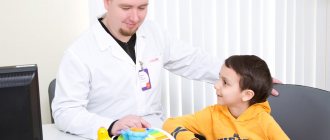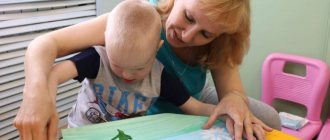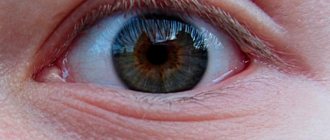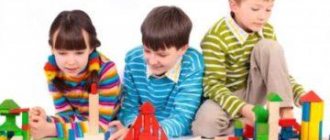Deviant behavior is any behavior that deviates from social norms. The key point is that norms are set in relation to a particular society. Therefore, behavior that is normal for some people is considered undesirable in another culture.
There is no generally accepted classification of types of deviant behavior. Below are several different classifications depending on the characteristics taken as a basis.
According to the goals pursued by the individual, deviant behavior occurs:
- selfish orientation - the desire to obtain selfish material gain through dishonest actions or offenses (theft, deception, fraud, speculation);
- aggressive orientation – crimes against the person (rape, murder, beatings, insults);
- socially passive orientation - avoidance of fulfilling social normative responsibilities, avoidance of an active lifestyle and solving necessary problems (absenteeism from work and school, various types of addiction, vagrancy, suicidal thoughts).
In terms of results, deviations from the norm are:
- positive – the individual’s actions are aimed at overcoming outdated standards and contribute to changes in the social system for the better;
- negative – human actions are aimed at destroying the social system, leading it to dysfunction and disorganization.
Some experts divide deviant behavior into the following types:
- antisocial (delinquent) – a person’s actions contradict legal, moral, ethical and cultural norms;
- asocial - an individual commits actions that do not correspond to the social and legal norms of the society in which he lives, as well as customs and traditions;
- self-destructive - such behavior threatens the development and integrity of the personality itself.
Deviant behavior in childhood and adolescence may include a combination of several types or manifest itself in only one. Such changes can appear very early due to congenital causes, arise as a result of physical injuries that affect brain activity and neurological condition, or be formed during the process of upbringing or under the influence of unfavorable social and psychotraumatic factors.
The assessment of one's actions in children and adolescents can also be different. Some feel guilty, which causes their self-esteem to drop and neuroses to appear. Others consider their behavior normal and justify it, even if society considers it deviations from the norm.
Deviant behavior of children
Problems in upbringing, disobedience and aggressive aspects of behavior force parents to think about the mental state of the child at an early age.
The causes of deviant behavior in children are quite diverse:
- Biological – include intrauterine lesions (toxic effects, asphyxia, etc.), hereditary diseases that provoke delays in physical and mental development, and damage to the nervous system. This also includes somatic and mental disorders received by the child in the first years of life (traumatic brain injuries, frequent stress, etc.).
- Social – reflect different levels of ill-being of the surrounding people. This includes alcoholism of relatives (for example, a young family lives in the same apartment with a drinking grandfather), excessive conflict, and domestic violence. All this provokes the child to adjust his behavior in accordance with antisocial norms. An incomplete family can also influence deviant behavior, since the child has a deficit of role and behavioral reactions that should be borrowed from the corresponding family member.
- Pedagogical - this includes the abuse of prohibitions, lack of explanations for punishments, which in turn causes a protest reaction on the part of the child. Also, deviant behavior develops as a result of a standardized approach to treating children in preschool and school institutions, where individual characteristics are not taken into account.
- Psychological – features of upbringing in the family that adversely affected the emotional-volitional sphere of the child, for example, upbringing according to the “family idol” type, hyper- or hypoprotection, domestic violence, parental alcoholism. Psychological reasons also include a violation of attachment to adults.
If there are medical indications, then therapy should be carried out as early as possible. In the case of social and pedagogical reasons, it makes sense to think about changing the strategy of adult behavior.
In the same way, psychological reasons require immediate correction. If deviant behavior is ignored in childhood, then it is consolidated and becomes more stable, flowing into adolescence.
DEPRESSIVE DISORDER
Certain age periods are distinguished by their own depressive disorders.
Young children, up to 3 years old, become sad and avoid eye contact. There is a delay in the acquisition of new skills and achievements according to the age period. Self-harming behavior is typical: biting, hitting oneself, hitting one's head. Calming movements include thumb sucking, rocking, and monotonous walking.
Younger schoolchildren become apathetic, irritable, and withdrawn. There is a loss of interests and a decrease in intellectual activity. Sleep is disturbed.
Adolescent depression is determined by negativism and rapid mood swings. Disturbing feelings of guilt, self-accusation. Sleep and eating disorders are typical. Negativism and aggressiveness provoke deterioration in relationships with friends and problems in educational activities. Suicide attempts are a common symptom.
Deviant behavior of adolescents
Deviant behavior in adolescence is more dangerous than in childhood. Firstly, because a teenager can commit more destructive actions. Secondly, because correcting such phenomena requires active action and a long time.
The causes of deviant behavior in adolescents can begin in early childhood, or may develop later under the influence of a peer group or due to a change in environment, maladjustment (for example, due to the breakdown of a family, the loss of a loved one, etc.).
The most common forms of deviant behavior among adolescents:
- destructive-aggressive - it is characterized by radical and even rebellious actions of the individual in order to establish new orders in the environment where he is located, this can be a family or boarding school, orphanage, as well as changing the activities of a social group or his place in it (class in school, a group at a club or in a sports section, a gangster group on the street, etc.).
- destructive-compensatory - a milder form of deviant behavior in which a teenager tries to take a desired place in society or achieve certain changes in his social status. In contrast to the destructive-aggressive form of behavior, in this case a person most often gives in to his principles and beliefs, falling under the influence of a certain social group. This may be submission to the rules of informal groups in exchange for their friendship, protection, recognition or material support. For example, a teenager who has not previously tried cigarettes or alcohol or has not used obscene language begins to use them. Joins in bullying someone outside the group or takes a passive position, not trying to protect the victim from attacks from peers.
- compensatory-illusory - aimed at relieving psychological discomfort and dissatisfaction with the current state of affairs with the help of psychoactive substances. There is no opposition to society; the teenager chooses to isolate himself from it or artificially change the existing perception.
Correcting the latter form of deviance usually causes the greatest difficulties, since in addition to psychological characteristics, it is also necessary to solve the problem of addiction.
REACTIONAL FOUNDATIONS OF DISORGANIZATION OF ACTIONS
There are certain types of reactions characteristic of children with a disorganized manner of action.
For younger children these are:
- protest. Occurs when there is increased imposition of something, or restriction of activity. Active protest is manifested by aggression, rudeness, and damage to property. Passive - hostility, deliberate silence, suicide attempts, starvation, running away from home. Physiological signs – enuresis, digestive disorders, hacking cough;
- refusal is a reaction to dissatisfaction with the sense of security and communication in very young children. Manifestations: lack of activity, desire to communicate, lack of emotion. No response. There is no desire for gaming activities. Everything is not interesting, they are not able to enjoy sweets or favorite toys;
- imitation - imitating the negative traits of authority figures. Children adopt bad habits and antisocial activities;
- compensation - the child compensates for the failures of one activity with the achievements of another. Failures in educational activities are compensated by hooliganism and theft. Fears and timidity are replaced by bullying other children, extreme car and motorcycle riding.
Reactions in teenagers:
- emancipation - resistance to the rules established by adults, rejection of help, disregard for advice and tips;
- grouping - the creation of antisocial groups;
- hobbies - aimed at satisfying interest in a specific activity. Excitement is satisfied by card or other games for money, leadership - by situations of leadership (gangster group). But even if hobbies are positive (sports, art, beauty), they can also destroy acceptable rules of action. They are provoked by refusal to attend school, carrying out illegal acts, making inappropriate acquaintances, ignoring relatives, and committing life-threatening acts.
Prevention of deviant behavior
Preventive measures should be aimed at identifying children at risk, eliminating factors contributing to the development of deviations, as well as providing timely assistance.
In order to stabilize the emotional and behavioral spheres in children and adolescents, it is necessary:
- To develop an interest in the world around us and people, a desire to study and understand the patterns of people’s reactions and the functioning of society. This needs to be done not only in educational institutions, but above all in the family.
- Introduce the child to the appropriate rules of behavior in various life situations. For kids, it is possible to consolidate the necessary skills in a playful way; for teenagers, training classes are suitable.
- Develop adequate self-perception and self-esteem, which subsequently makes it possible to navigate in any situation and choose appropriate behavior from those strategies that were successfully learned earlier.
- Develop communication skills in various forms for any situation, as well as with different categories of people. The more practice a person receives, the higher the likelihood of subconsciously using the correct strategy in a real situation.
- Parents should pay attention to intrafamily interaction and the psycho-emotional atmosphere in the family. Develop mutual understanding and parenting competence.
For categories of children and adolescents who have undergone correctional programs, it is necessary to prevent a return to previous forms of interaction. The key points here will be practicing the acquired skills and appropriate moral and psychological support.
CAUSES
There are a sufficient number of factors that provoke the development of the defect. It is impossible to talk about their determining effect, but these provocateurs are capable of preparing favorable soil.
A special role belongs to the family atmosphere in which a small family member is raised. For example, a relationship has been established between conduct disorder and parental divorce, the appearance of a stepparent, a large family, and poverty. Sometimes the mother's age is too young.
A destructive parenting style is considered to be a low level of control and insufficient participation in the life of a child, especially a teenager, as well as the unpredictability of parents’ reactions to their children’s actions.
There is a relationship between a defective way of acting and a low level of intelligence in children, the ability to organize and plan their own activities, and switch attention between goals.
Hereditary factors cannot be ignored. When one family member - parent, brother, sister - suffers from behavioral disorganization, there is a risk that the younger member of the family will adopt similar manners.
Examples of deviant behavior and the correct reaction of parents
One of the common examples with which parents turn to a psychologist is when a child behaves aggressively for no apparent reason or makes scandals.
The most effective response on the part of adults, preventing the recurrence of such manifestations, will be its complete absence. Those. even if a child falls to the floor, chokes in hysterics and screams all over the street, the parent should start talking to him only after he has completely calmed down. Thus, self-control is trained and behavior is reinforced, in which the baby understands that he will be listened to only if he behaves normally.
Absenteeism from school and systematic failure to complete assignments should not cause an excessive reaction on the part of parents, but they also cannot be ignored. This form may be a way to attract attention from the family, or it may arise as a result of psychological difficulties that have arisen in the school community. Here it is important to calmly discuss with the child the reasons for this behavior, without interrogating or hinting at punishment. The main thing is to let the child understand that you are at the same time, that is, you are even ready to write a note to the class teacher if a banal rest will correct the situation.
In case of offenses and/or evidence of drug use, drastic measures are necessary to suppress this type of behavior, including changing the place of residence, if there are no other opportunities to change the child’s social circle. It is also necessary to carefully study the reasons for this behavior and eliminate them, since without removing the “root” of the problem, its recurrence is very likely.









